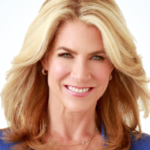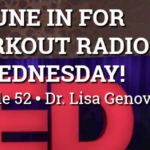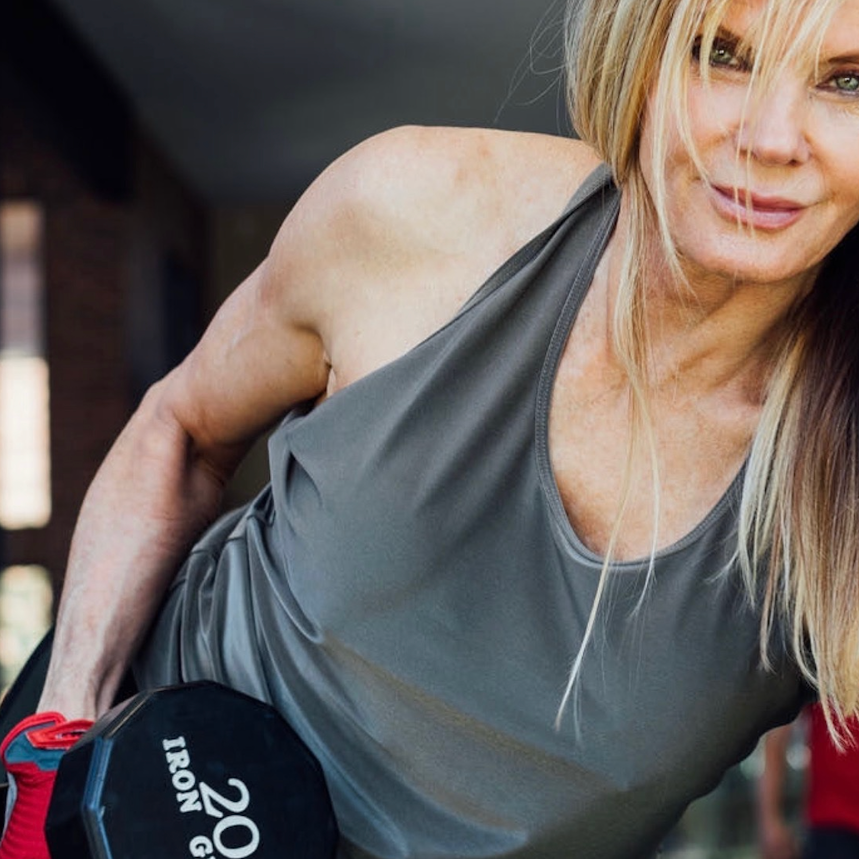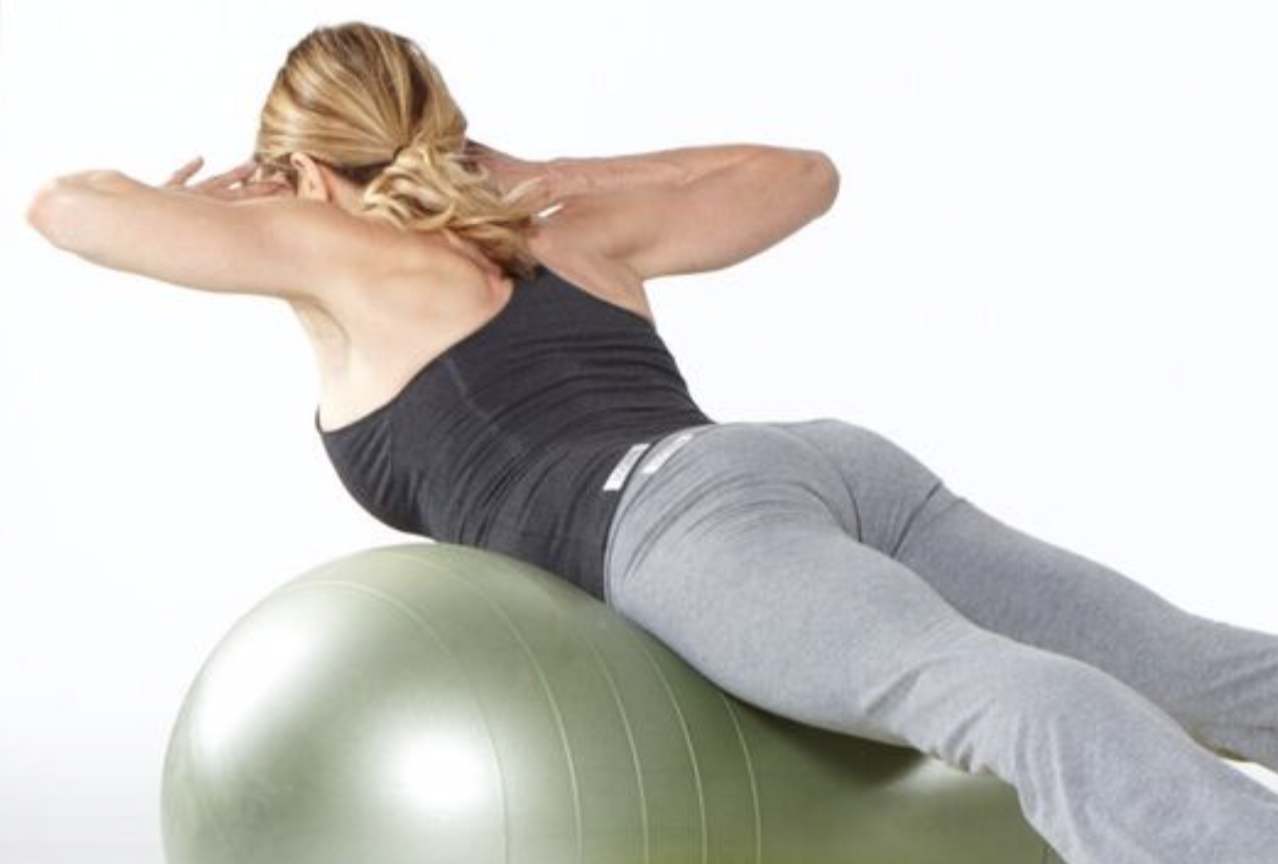Episode 75 | Julie Weiss | 52 Marathons in 52 Weeks
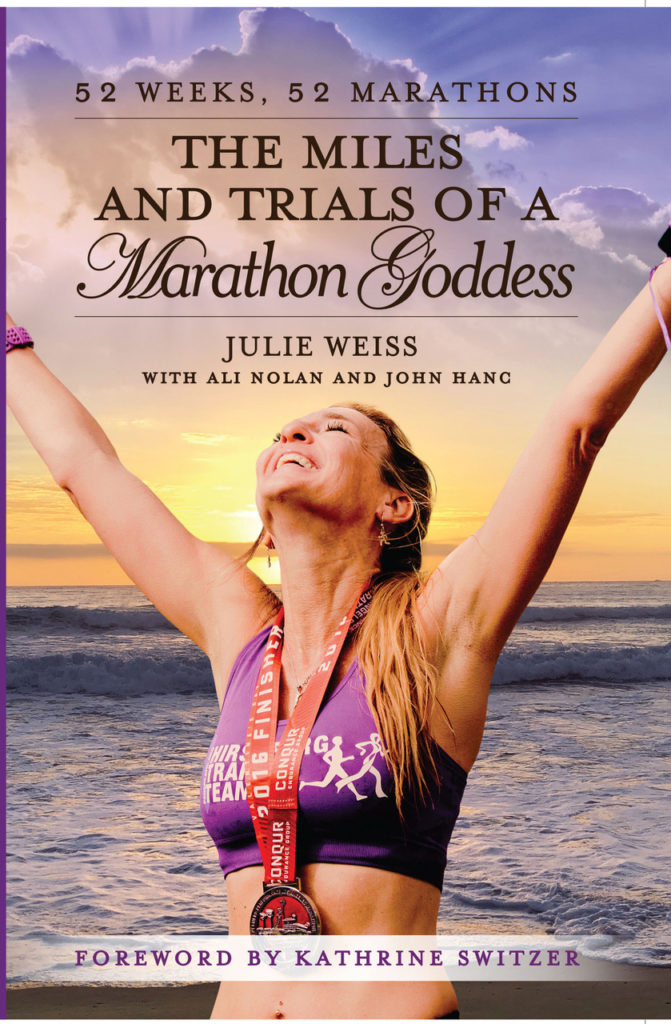
To Listen, Just Click Play!
Do you feel like you’re at a point in life where you feel like something has to shift… it could be changing a job, losing weight, moving to a new state, improving or ending a relationship? If you’re frustrated or confused about how to take action and get started in that process, then today’s new podcast with Julie Weiss is for you.
Julie wrote the book, The Miles and Trials Of A Marathon Goddess. Imagine having the determination to run 52 marathons in 52 weeks…it seems impossible. For most of us, even running one marathon is daunting… running 2 miles can feel exhausting… especially if you’re not an athlete. But that’s exactly what Julie did.
In her book, she opens up her soul and talks about the tough stuff that happened in her life…the dark side, the demons, the bad choices she made, and when she finally hit bottom and felt completely overwhelmed, she decided to finally reclaim her life. And she did it one step at a time…or should I say, 26.2 miles at a time. And along the way she raised over half a million dollars for a cause near and dear to her heart.
Julie’s powerful message of determination will give you the courage to step outside your comfort zone and make the changes you want. If you’re ready to spread your wings and make things happen, listen up!
Subscribe To The Art of Living
Like What You Heard?
If you like the show, I’d appreciate if you could please take a moment to leave an honest review and rating for the show on iTunes. They’re super helpful for ranking the show so more people can find it. And, I love hearing what you have to say!
And, remember to subscribe on iTunes to receive updates every Wednesday when a new episode is live!
Follow Along With The Transcript
Kathy Smith: Julie, welcome to the show.
Julie Weiss: Thank you so much for having me.
Kathy Smith: I laid the groundwork. You ran these 52 marathons in 52 weeks. Of course, it’s a remarkable feat. But I think what’s even more remarkable, after I read your book, is when you look at your life and stepping back for a minute and exactly what prompted you to even go down this path. Because you weren’t an athlete, you weren’t an Olympian, you weren’t the typical buffed out kid that was signing up for classes and going out and running with your schoolmates and everything. You were leading a different kind of life. Can you take us back? Can we step back into those teenage years?
Julie Weiss: Absolutely. As a teenager, I was a troubled teenager. I was sort of a bad girl, I guess you could say, and I’ve always had this feeling like I wasn’t good enough or I didn’t fit in. Sadly, that came from a relationship with my father. He was very critical of me, and unfortunately, I just never felt good enough.
I kept trying. Everything I did just didn’t seem to quite make the mark. I ended up as a young, single teenage mom with two kids, overweight, depressed, and at the depths of despair. I was very depressed on the highest strength antidepressants that you could take. That’s where I was.
Kathy Smith: So that was in about your mid-twenties that you had your children. I know you had one when you were 17 and one when you were 21.
Julie Weiss: Correct.
Kathy Smith: And it sounded like you made some – as we all have – some bad choices with perhaps men and then going down this path of getting on the antidepressants. Take us to the moment that you decided that you needed to change your life and what prompted you to take that first step to start running or walking or to move yourself forward at all.
Julie Weiss: That’s a great question and it’s actually in two parts, because this book is really about love. It came down to love when I was at rock bottom and I had broken up with this guy. I was looking for love in all the wrong places and never really loving myself.
I was on the beach one morning and I was like, “This is it. I’ve got to change my life.” I knew that there was something inside of me that said, “You’re going to be okay. You can heal. You are destined for great things.”
There was always that nagging in my heart that knew I was destined for great things. It took a while – baby steps. But when I found myself on vacation with my family, I was in my mid-thirties, probably close to 200 pounds at the time. I was really getting up there. The antidepressants added weight to me, and it made me kind of weird. They do help some people, but they didn’t help me. And I made a pact to myself that I would, on this vacation, start running on the beach and try to get healthy and do something good for myself. I was going to turn it around. This was a decision that I decided, “I’m going to change my life.”
I was in Hawaii, and I say this in my book – “Everything looks better in the Aloha State.” I started running on the beach that day, and I felt connected to the earth, to the water, and something in me just awoke. I went probably about a mile – if that – probably not even. It felt like ten miles. But when I finished that run, I felt alive again. Something in me awoke. I was regenerated by the sea, and I thought, “Oh, my gosh,” like I was being reborn. It was a beautiful feeling that I wanted to hold onto and I wanted to continue and see what else was there.
So when I got home to Santa Monica, I made a pact to myself that I would continue to run. Actually, that very same night I started running on the beach, I decided that I would no longer need the medication. The running and exercise became my new antidepressant.
Kathy Smith: Wow! That was such a game-changing moment. It seems like you had a conscious awareness of how powerful that was and how powerful this journey was going to be. Did you realize where this running was going to take you at the time?
Julie Weiss: I always knew that it was going to take me somewhere big, but I didn’t know the love that I would have for it or the love that would blossom between my father and I because, as I mentioned before, our relationship wasn’t that great growing up, and he was extremely critical of me. But when I started running, something changed. I was proud of myself. He was proud of me. I thought, “Okay. I’m going to run a marathon.” He actually suggested a running group.
So it was just this love that blossomed out of running and out of this relationship with my father. I had no idea where it was going to take me. I was just happy to have my father back.
Kathy Smith: What I found interesting is that you stepped away from other abusive relationships. You stepped away from your drugs. You reconnected with your dad. But also, per his suggestion, you reconnected to other runners in this running club, who had similar sensibility. You had the social support to help guide you, to help lead you, to help inspire you every week. And I think that’s an important message for all of us no matter whether you’re trying to run a marathon or just get involved in a better, healthier lifestyle. To surround yourself with people that are on the same wavelength, that are doing the same thing is so important.
You credit your father for getting you involved with that, which I think is a beautiful turning point in your story. Because your dad seems like he was a real hard-ass growing up, I’ll have to tell you. It seemed he was a real disciplinarian and didn’t know how to choose his words wisely, so to be able to get to a point where you forgive him for that but also you start developing this new relationship. Tell us about the new relationship with your dad.
Julie Weiss: Everything you said is so true. It almost makes me cry. First of all, the relationship with my father became healthy. There were no more insults. He was very proud of every single marathon or half-marathon that I ran. He became my biggest fan.
You’re right about exercising or running or joining a group of like-minded people with a common goal. Because once I joined this group, I found myself with people who were from all walks of earth. They were some investment bankers. It didn’t really matter what they did, but I found myself hanging out with people that were happy and that were doing something wonderful and positive with their life, and they were telling me that I’m inspiring. And I’m like, “I am?”
Pretty soon, I become a leader for those running folks. To be with a group of people like that and you’re all striving to train for a common goal and the comradery that comes out of that is incredible. So God bless my dad for leading me in that direction, because it really did change my life and my life with my father as well, because he ended up coming to a lot of my marathons and really being my biggest fan. He didn’t even care about how fast I ran or what my time was. He was just proud of what I was doing, and he began telling all of his friends what I was doing. Then I heard about the Boston Marathon, and that became another goal of ours.
Kathy Smith: Yeah. It was such a beautiful story of reconciliation and forgiveness. I know you’re going to tell us about Boston, but prior to getting into that, where did you make this shift from, “I’m going to be a runner, and I’m running on the beach in Hawaii, and I barely made it that one mile,” to now, “I join this running group suggested by my dad. Then I come up with an idea to run 52 marathons in 52 weeks,” which I don’t think there are many people on the planet that’s ever done that. Walk us through all those stages.
Julie Weiss: Once I started running on the beach and I kept that pact and I was running every day with my dog and my friends, one of my friends said, “Hey, let’s sign up for a triathlon.”
I was like, “Okay.”
I really didn’t know what I was doing, but I did a little training and completed that. I think I caught the running bug. That’s what happens with a lot of runners. You almost get addicted to it.
So I just began running a marathon. My first marathon was terrible. I thought I would never do another marathon after that. I went out too fast, hit the wall at mile 12 or so. I decided that I had to redeem myself. My dad was always there for me, and I thought, “Okay. Now that I’ve got this running bug, let’s see what else I can do. Maybe I can qualify for the Boston Marathon,” which was a goal of ours.
Really, I was very naive and ignorant. I didn’t know what I was doing. I wasn’t training correctly. I really thought the more marathons you ran, the faster you would get. That wasn’t quite working.
Kathy Smith: Let me just interrupt for one second for people that don’t run marathons. For most marathons, you can just enter, pay your fee, and go run the marathon. But for the Boston Marathon, you have to qualify with a specific time. So therefore, the Boston Marathon is one of the most prestigious, it’s one of the oldest, but also you have to qualify. Let me just lay the groundwork there as you go on with your story.
Julie Weiss: Thank you. It became this goal of mine to qualify for the Boston Marathon. My father was very excited about it. I think I ran about 17 or 18 marathons, and I could tell that my body recovered fairly quickly. Not everybody’s body has the genetics to recover that quickly from marathons, but mine did. So I kept running and finally got to the point where, “I’m not getting any faster. Hire a coach. Do it right.”
So I hired a coach. I got so close to qualifying. I missed it by just about two minutes. My dad said, “Don’t worry. You’re going to make it. Just keep going.”
Sadly, the next day after I had just missed Boston by two minutes, he was diagnosed with stage four pancreatic cancer. My heart sunk. I was devastated and felt helpless and I thought, “Do you know what, Papa? You are going to beat this, and I am going to qualify for the Boston Marathon in the next race, and you are going to come with me and watch me qualify.”
We were so excited. We got online and we booked our reservations. My dad wasn’t doing that great unfortunately. I was trying everything I could to get him a new diet and see what our options were and, sadly, I didn’t know much about pancreatic cancer. But I was determined to help him beat it. Unfortunately, he passed away just 35 days after his diagnosis, and 10 days after that, I ran that qualifying marathon, and I qualified for the Boston Marathon in Sacramento and ran the best race of my life. I know he was there with me.
Kathy Smith: So you feel like he was right by your side? He was running next to you cheering you on, I’m sure.
Julie Weiss: Oh, yeah. After that, I knew that I had to do something more. That’s when I woke up with this crazy half-baked idea. I had heard one other person that I’d known at the time who had run 52 marathons in 52 weeks, and I thought, “I am going to do that, and I am going to raise a ton of money to cure pancreatic cancer. I don’t know how I’m going to do this, but I am going to find a way.” That’s how it came to be.
Kathy Smith: Unbelievable story. I have to say the love that you feel between you and your dad in the book made me cry, because it is one of these things that you realize that as he was watching you reinvent yourself, he was so impressed by your lifestyle and your passion, and it just drew him closer to you and you closer to him. So that was such a magical moment. Then to get hit with this tragedy must have put you back on that beach in Hawaii of why you needed to run to probably deal with pain and heartache and loss and all these things that we know running is so helpful.
I know in my own life, I lost my parents at a very young age, and I turned to running and ran my first marathon. It was to get past the hurt and the upset. I know that Kathrine Switzer wrote the forward to your book. She’s a friend of mine. I work with her at the Women’s Sports Foundation. I admire her obviously. For people who don’t know, she was the first woman to run the Boston Marathon. That was over 50 years ago.
But in the forward, she writes, “Nobody can run and stay angry, and nobody can run with a broken heart without eventually finding healing. So when you’re feeling out of sorts, put on your shoes and go for a run.”
I know that’s what I would do. Is that one of the things that inspired you to do this?
Julie Weiss: Absolutely. Running helped heal my broken heart. Like she said, your heart will eventually heal. You can’t run and stay angry. Eventually, you are going to get back to healing and get back to love. I just lost my dog – who was my first running partner – a couple of weeks ago. The first thing I did after I lost her, I went out for a run. And the tears come and you finish and then you feel better.
That’s what this book is about. It’s about love. Hopefully, everything you do – your training, all of your races and possibly everything you do in your entire life comes from love. Frustration or depression, all of that can be great motivators. But the bottom line is love and the transformation and the triumphs over life’s adversities that can come through running or exercise. It doesn’t have to be running. It’s whatever you’re passionate about.
If you love to dance, if you love to cook, whatever it is, it’s about the love that you have for whatever your passionate about and the people that you love as well. That continues to carry me.
Kathy Smith: Let’s get into some of the basics about marathon running. We sort of skipped over one marathon versus 52 in 52 weeks. When I’ve told people about your story, there’s almost disbelief, especially athletes, especially people who run or bike or whatever. They go, “She did what? No. Consecutively?”
Even my daughter, who is a runner and who’s an Olympian, when I told her about your story, the questions start to arise like, “How much running did she do?”
Let me give you some bullet points. Some of the questions that I’ve gotten from people, as I’ve discussed it in my social circle. First of all, as you got going, how did you train for those 52 weeks? I know you started running. In your book, it said you’ve gone from Napa Valley to New Orleans. You ended your 52nd marathon in your home town of L.A. But give us a snapshot of a week in the life of Julie during this year that you were running the marathon – your travel, your running. How did you eat, sleep, work. What was it like?
Julie Weiss: Life in the day of a marathon goddess, boy. My biggest challenge was actually getting to the next marathon healthy as getting the starting line. Logistically, it was sometimes a nightmare. I was not just running 52 marathons in 52 weeks. I had to get back to work Monday morning. So I would leave my office on a Friday, get on a plane or drive or whatever to another state – sometimes country – to run a marathon. I would run that marathon, and I would hop right back on a plane and get back home so that I could get back to work Monday morning.
There was no real running in between. It was just about recovery and staying injury free. Most of my marathons had to be run at a slower pace so that I wouldn’t get injured, but recovery was there was no running during the week. There was a little strength training and some stretching wherever I could even if it’s in the airport or in the aisle on the airplane.
Kathy Smith: I can picture you stretching out that IT band in the middle of Delta Airlines.
Julie Weiss: Exactly. That was a little crazy, but it became the routine after a while.
Kathy Smith: Are there a few of the runs or one run in particular that stands out as being memorable, because it was super good or super bad or something about it?
Julie Weiss: There are so many. I think of the Tahoe Triple Marathon because there were three – obviously – three marathons in three days run at altitudes. There was one on a Friday, Saturday, and Sunday.
I had to adjust some things, because you can imagine in a year things happen and you have to adjust your schedule, so I had to do three marathons in three days to catch up for one or two that I had missed.
My body was in shock, and I was crying that second day, but by the middle of the race, I had some caffeine and an attitude adjustment, and that’s pretty amazing what that can do. So I did finish the three marathons in three days.
After I did that, I was like, “I can do anything now.” Or the Leadville in Colorado, which starts at 10,000 feet going up to 13,000 feet. I never had run at altitude before. Somehow, I made it through, and I would say that it’s because of the people that I was running for – these people who are affected by pancreatic cancer made– not that a marathon is easy, but it was nothing compared to their battle to what I was doing helped to motivate me, to get to that finish line every single time without injury.
Kathy Smith: I can imagine.
Julie Weiss: That’s a miracle.
Kathy Smith: Yeah. I was going to ask you about injuries. I can imagine the confidence you build and this powerful message of determination and your tireless efforts to race every week or almost every week and having your father there as your guiding light.
Tell me a little bit more about pancreatic cancer, what you’d like the listeners to know about pancreatic cancer. We’ll let people know where they can donate money. Tell me about how you started your nonprofit and what your goal is with it.
Julie Weiss: I’m raising money for the Hirshberg Foundation for pancreatic cancer research. I don’t have my own nonprofit, but I’m their national ambassador this year. They’re a wonderful organization. They’re doing wonderful work on the front lines of this disease, because over 57,000 people in the United States will be diagnosed with pancreatic cancer. There’s a 9% mortality rate after five years. That’s better than it was when I started this journey. I think it was 5% after five years which is still unacceptable. The Hirshberg Foundation is focusing on new research for early detection, because currently, there is no tool out there that can detect pancreatic cancer early, which is a huge factor. If you are diagnosed and they catch it early, you have a way better chance of surviving.
They’re also focusing on quality of life, which I believe is very important, because I have friends that are stage four pancreatic cancer survivors. I had a dear friend, sadly, who I just lost, who fought a valiant battle for seven years with the most positive attitude and the strongest will and the faith that I believe carried her through those seven years, because she was given six months to live.
So your attitude, your mindset, and that strong will is very important. Alex Trebek, from Jeopardy, was just diagnosed recently, and that positive spirit he has will help him in his fight.
I’m doing everything I can to spread awareness so people know about this disease and can help us fund more research. Ultimately, I set out to raise $1 million. We’re over halfway there. But even after that, we’re not going to stop until we have a cure. That’s why I keep going. And all of the people that I continue to run for are motivating me to keep going so that we can get to that cure. If we can do it for breast cancer, we can do it for pancreatic cancer. Not everybody survives, but I do see more and more survivors.
Kathy Smith: You’re changing so many lives. It’s unbelievable, the work you’re doing. Tell me what are some of the warning signs that we should look for when it comes to our own health with pancreatic cancer.
Julie Weiss: It’s through some of the things you wouldn’t even think of. If there’s extreme weight loss all of a sudden, you’re losing weight. Or if you have sort of a jaundice. Your skin can turn yellow sometimes from jaundice. If that happens, that could be a sign of pancreatitis. You better get it checked out.
For my dad, he just had some pain in his lower back. That’s the thing. We’re out there walking and running, we’re exercising, and we get pains. Who would think that a pain like that could be cancerous? That’s all my dad had was a pain in his lower back, and he was tired. So if anything feels weird, it’s really important to be in tune with your body. Obviously, diet is very important, because my father’s diet wasn’t the best. He ate a lot of processed sugar and meats. I’m not an expert, but sometimes I feel like that could turn those cancer cells on and especially for somebody like me who my grandfather had it and my father had it.
So it’s very important to eat as clean as you possibly can. I know that’s easier said than done. But we do the best we can. Just watch out for signs of anything unusual – weight loss, jaundice, some back pain, stomach pain. Some people feel like they might have gotten punched in the gut or something like that. A pain in your stomach could do it. You just need to get it checked out.
Kathy Smith: So if you could close out the show with just a few words of wisdom for somebody who’s trying to shift their life. Whether they’re trying to lose weight or whether it’s about a relationship they have in their life or they’re trying to reinvent themselves, what are a few words of wisdom that you could impart to them?
Julie Weiss: That’s a great question. Let’s end this on a positive note, because I know not everybody is a runner. This book is not just about running. It’s more about transformation and triumphant. A lot of people think that their life options for joy are limited. But I want you to know that limitation never has to be true. So many of your dreams are still possible. What’s important is that you take that first step and come out of your comfort zone a little bit. When you do, be proud and whatever you do, remember to do it with love and be happy and be proud of yourself every single step of the way.
And celebrate every single win. It doesn’t have to be big. It doesn’t have to be a marathon. If you just got up off of the couch and you went for a walk around the block, that’s a win. Celebrate those wins and once you do, you’ll create the moment and that will keep you going. It’s very important just to be really nice to yourself and keep on going even when times are tough. Even the smallest steps to keep moving forward will eventually get you to your goal, and goals make people happy. So pick a goal – something big, something small, whatever it is, something that you would love to do – and go for it.
Kathy Smith: I really like your message of celebrating life. And I’m celebrating that I had you on the show today, because it’s such a pleasure to read your story and then to hear your story, because it is so inspirational. You are changing lives and you have changed so many already. And it started with that one step on that beach in Hawaii that took you to where you are today. You’re an inspiration to all of us. Thank you for being here.
Julie Weiss: Thank you, Kathy. You’re an inspiration to all of us as well. It’s been an honor to be on your show. Thank you so very much.
Kathy Smith: Okay. Until next time. I can’t wait to go for a run with you in Los Angeles the next time I’m there.
Julie Weiss: I’d love that. Great. Thank you.



